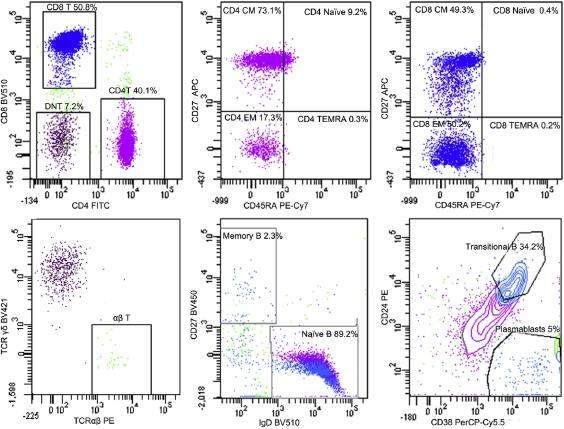
Clinical phenotype of a Chinese patient with RIPK1 deficiency due to novel mutation


Accumulating evidence indicates that RIPK1 is associated with inflammation and apoptotic.RIPK1 deficiency leads to proinflammatory signaling impaired. However, only few patients with homozygous loss-of-function mutation in RIPK1 gene had been reported until now. Here, we report a Chinese combined immunodeficiency patient. He had recurrent infection, diarrhea after 3 months old. Immune function indicated that T, B and NK cells decreased significantly but immunoglobulins approximately remained normal. Whole-exome sequencing indicated that he had novel compound heterozygous mutations (c.998 C>A from his mother and c.1934 C>T from his father) in RIPK1 gene, which were confirmed by Sanger sequencing. Our studyreportsnovelmutationsinRIPK1geneandnewphenotypeofpatientwithRIPK1deficiency.
